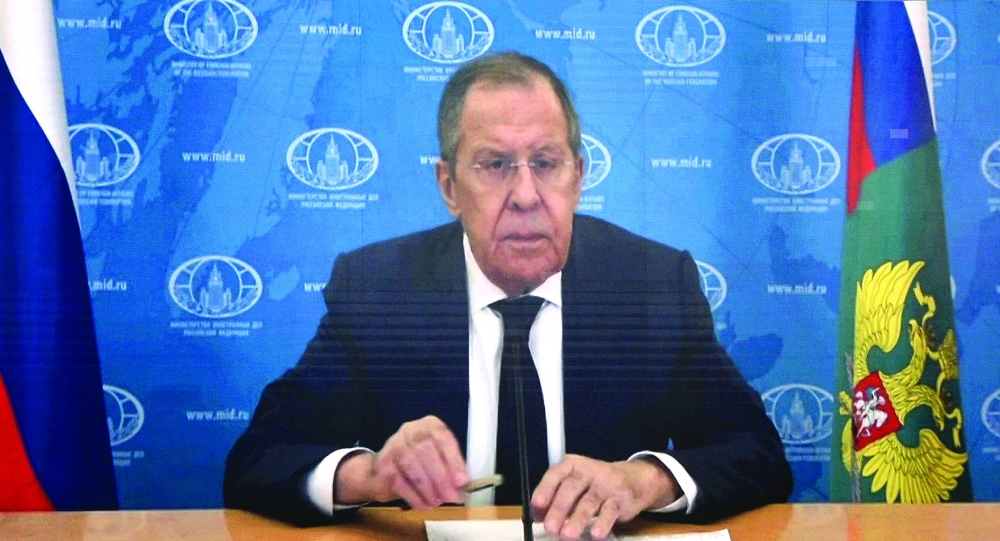Russian Foreign Minister Sergey Lavrov remains hopeful for diplomatic solutions in the Gaza conflict despite the challenges as he cited his country’s efforts at the United Nations (UN) to find a peaceful settlement.
In a newsmaker interview (video link) with Al Jazeera's diplomatic editor, James Bays, at Doha Forum 2023 Sunday, Russia’s longest-serving foreign minister in the modern era shared insights on global power shifts and addressed the ongoing conflict in Gaza and the situation in Ukraine.
Lavrov said Russia strongly condemned the attack against Israel on October 7 “like we condemn any terrorist attack but, at the same time, we do not believe it’s acceptable to use this, this event, for collective punishment of the millions of Palestinian people with indiscriminate shelling of the civilian quarters”.
Lavrov highlighted Russia’s proposed resolutions at the UN for humanitarian ceasefires, but he said this effort was blocked by the US.
“You mentioned the number of casualties, they are growing day after day, and those who suffered most are the kids and women, and the effects of what is going on... We have introduced a resolution in the Security Council, it was blocked by the US. Brazil introduced another resolution, it was also blocked by the US. Then the General Assembly passed the resolution which was weaker than what we wanted because it provided not for humanitarian ceasefire but rather for humanitarian truce,” he pointed out.
Lavrov criticised the US veto and said that its consequences are now for regional and global nations to assess.
He argued that the unresolved Palestinian statehood issue has been a key driver of extremism in the Middle East. He disclosed that Russia had consistently warned Israeli counterparts about the dangerous consequences of neglecting the Palestinian question.
Lavrov delivered an introductory speech on the changing dynamics of global power before the discussion shifted to the conflict in Gaza. He claimed that the West’s pursuit of globalisation had inadvertently empowered other nations to challenge its dominance by building economies based on national sovereignty and balanced international relations.
However, he asserted that other countries have successfully used Western principles of globalisation to build their economies based on national sovereignty. He underscored the emergence of new global players and organisations like BRICS (Brazil, Russia, India, China, and South Africa), Shanghai Cooperation Organisation, ASEAN, and the African Union, describing them as the building blocks of a new polycentric world.
About Russia’s actions in conflicts like Chechnya and Syria, Lavrov rejected claims of hypocrisy, saying that his country’s interventions were transparent and aimed at fighting terrorism. He stressed the difference between Russia’s approach and what he termed as West's ‘cancel culture’.
About the conflict in Ukraine, Lavrov dismissed the idea of a stalemate and argued that the situation was orchestrated by the US and its allies. He criticised the rejection of a deal proposed in Istanbul and highlighted the complexity of the conflict.

Russian Foreign Minister Sergey Lavrov speaks at the Doha Forum via a video link Sunday. PICTURE: Shaji Kayakulam

